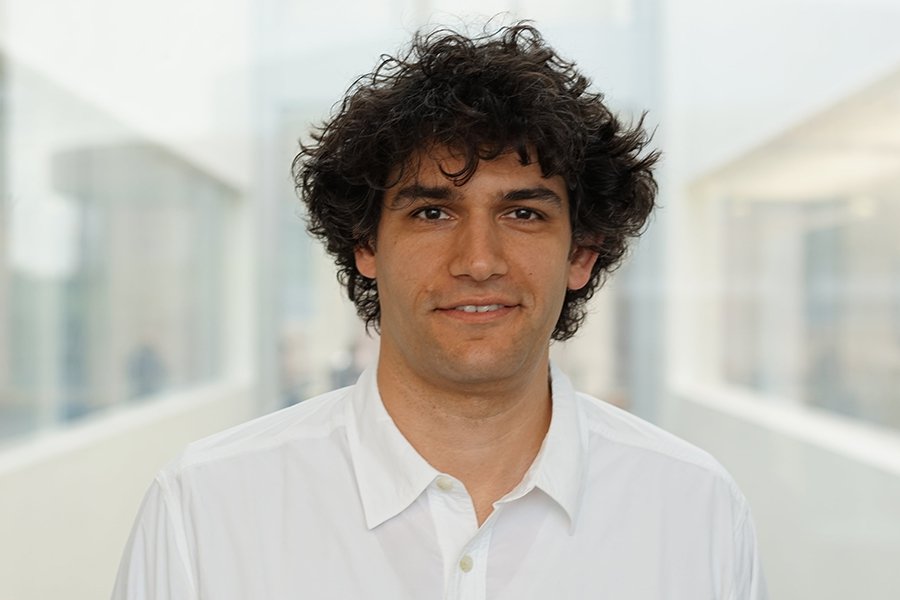Pribiag receives prestigious $1.25M physics investigators award

Pribiag’s research in quantum materials could have implications for next-generation computing
MINNEAPOLIS/ST. PAUL (08/21/2024) — School of Physics and Astronomy Associate Professor Vlad Pribiag is one of only 19 researchers nationwide to receive a prestigious five-year, $1.25 million Experimental Physics Investigators award from the Gordon and Betty Moore Foundation.
“This initiative is designed to support novel and potentially high-payoff projects that will advance the field of physics but might be hard to fund through traditional funding sources,” said Theodore Hodapp, program director for the Moore Foundation’s Experimental Physics Investigator Initiative. “Via an open call for proposals, we have lowered the barriers for researchers from a wide range of institutions and experiences to apply. We are delighted with the variety of ideas and projects this year's cohort represents.” Pribiag is the first person from the University to win this award.
Pribiag’s proposed research program combines advanced superconductor-semiconductor materials, powerful nanofabrication techniques and low-temperature measurement techniques to control the properties of quantum matter. His work is driven both by the potential to uncover fundamental properties of quantum materials and by the desire to develop quantum devices with emergent physical properties that could enable next-generation computing technologies.
The research aims to develop a powerful experimental toolkit for hardware-based simulations of quantum matter, with unique potential for tunability and scalability. The concepts developed in this project could also facilitate the development of new technologies with potential benefits for additional speed and energy-efficiency in artificial intelligence.
Pribiag previously has received several awards, including a National Science Foundation CAREER Award, Alfred P. Sloan Research Fellowship, and a University of Minnesota McKnight Land-Grant Professorship. He received his bachelor’s degree from the University of Toronto, and his master’s and Ph.D. degrees from Cornell University. He joined the University of Minnesota faculty in 2014.
The Experimental Physics Investigator Initiative provides flexible funding to pursue imaginative research ideas, allowing the investigators to explore new and uncharted areas and advance the scientific understanding of the natural world. To learn more about the Gordon and Betty Moore Foundation and see the full list of 2024 investigators, visit Experimental Physics Investigator Initiative website.